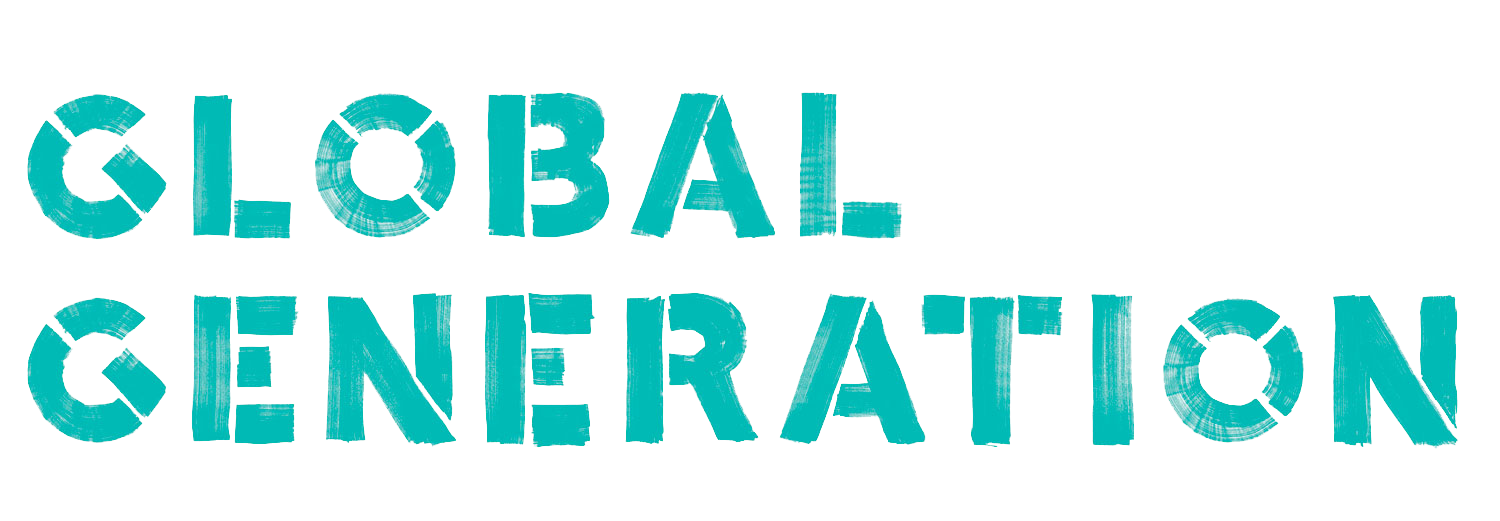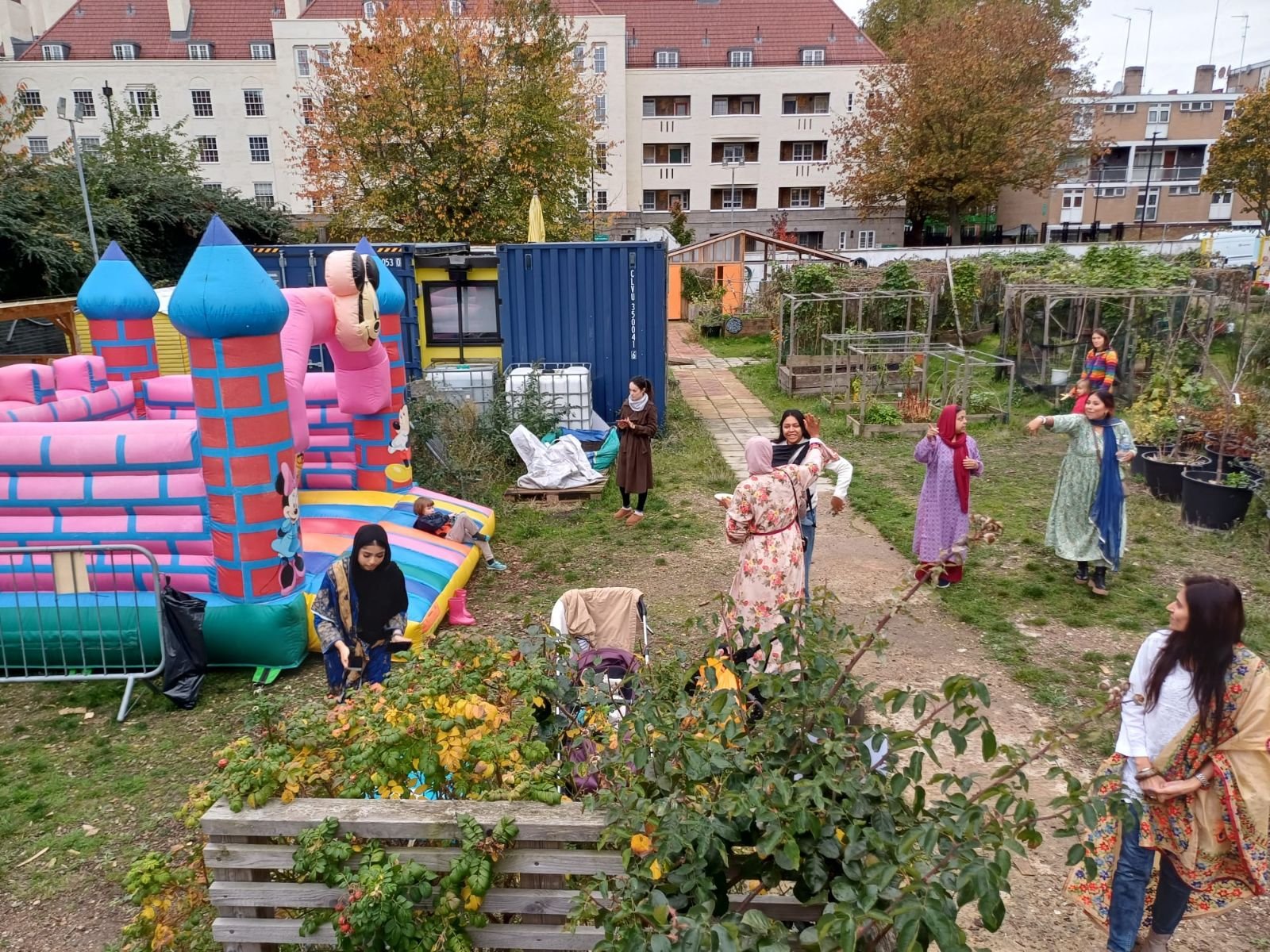Working with others: how can we relate to different beliefs and values?
Global Generation’s co-founder Jane Riddiford, moved back to New Zealand 3 years ago but returned to visit GG for a month last October reconnecting with many of us. This is a reflection from Lily, Fellow at GG after having a conversation with Jane about how an organisation can have firm values, whilst understanding differences at the same time.
“Morality binds and blinds. It binds us into ideological teams that fight each other as though the fate of the world depended on our side winning each battle. It blinds us to the fact that each team is composed of good people who have something important to say.” - Jonathan Haidt, the Righteous mind
It’s been ten years since I worked with Jane, Rod and Silvia on a project about creation stories. We studied myths from different parts of the world, and a 13.8-billion-year long story based on the theories of scientists. It made a big impact on me because I was a very existential teen - the invitation to feel awe and connection in being the end points of an extremely long and awesome process, was grounding and exciting.
Look closely and you can see earth from space as a pale blue dot
At university I focused on a particular section of the universe story: the origins of human behavior. I learnt that our values have evolved from what made us fit in our evolutionary environment – resulting in a level of shared instincts – the latent instincts in any newborn. What that child comes to believe is then determined by the stories in the places it happens to be born – the dynamics of our societies and families. The extreme degree to which what we believe and whether we change our minds is out of our control made me find it impossible to judge anyone ever again. For my dissertation I studied the emotions of young conservatives about climate change. I found a resounding sense of calm. There is a conservative story that celebrates calm and shuns left wing “hysteria”. There is a conservative story that says the status quo political and economic system is fundamentally good and right and must be protected. From this perspective, climate change feels more likely to be resolved by a trustworthy, benevolent status quo. There is also a limit to what we can do – because radical change is simply unthinkable. This creates a limit to how bad we can allow ourselves to believe it is, or a calm resignation to what is out of our control...
Our culture is in an angry place – there are firm lines in the sand, lots of judgements on those who stray beyond them, and feelings of superiority in our righteousness... What if all of our beliefs could be dissected and understood as made by our contexts, fulfilling existential and social needs, defended because of the functions they fulfill for us? Might we be more curious about our own ‘truths’?
The biggest factor determining what this baby believes is where she is born
Brian Thomas Swimme and Mary Evelynn Tucker’s ‘Journey of the Universe’ film aimed to encourage young people to take climate action. But the events of the last 13.8 billion years did not have any value judgments attached to them until maybe 300,000 years ago when homo sapiens started looking up at the stars and feeling whatever they felt about them and telling whatever stories they told about them... multiple mass extinctions occurred on earth before there was anyone about who could tell a story in which this was a bad thing. You could just as easily use the universe story to conclude that we are a tiny part of a big story, that everything has to come to an end, that there have been multiple mass extinctions before, and that new life has sprung forth after them...that human responsibility is just an arrogant human story – the universe does not care. Indeed, the psychological story could be used to teach us that we are not capable of being as responsible collectively as many of us would like!
And yet, I really want the planet to be ok. I want people to live alongside nature rather than against it. I want to make more people think like me. It’s my story. I absorbed it as a child in left-wing north London, a teenager at Global Generation...
But it’s not just that.
After all this unpicking of stories, I have come to lean heavily on the pre-human truths from the pre-story world. I think of pain and pleasure as constants, experiences that existed long before our stories about them did. Every living being has, in some way, recoiled from pain and sought comfort—even a single-celled organism moves away from harmful stimuli…
Moving towards food and away from danger
When I think about a responsibility to protect our natural environment, I'm responding to a reality that exists before narrative: pain is real, pleasure is real, and we have the power to increase or reduce them for others.
But as soon as I say that’s what we should do, I am entering story land. My feelings that we should limit pain are coming from the human instincts of care and fairness that helped us survive in the past, and from the humanistic philosophy that I have grown up with... but, as aware as I am of their origins, these feelings remain... I guess I could reframe my “we should’s” to: “I feel we should” – that is the difficult truth, and accept that other human instincts that helped us survive in the past, like competition, which different philosophies might be more grounded in…can lead to different “I feel we should’s”...
So, the super-long story of the universe, which includes the evolution of our values and psychology, keeps me humble to how little responsibility anyone has in coming to believe what they believe. It keeps me checking on the watertightness of beliefs, particularly those which cause harm. It reminds me that even when I anchor in the rightness of limiting suffering, that feeling of rightness is rooted in human evolution, rather than my own superiority. I can’t escape from the instincts of being human, so I still hold strong value judgments, but with a readiness to take in other stories…
Watch the Journey of the universe film: https://www.journeyoftheuniverse.org/film
Watch the universe story summer school film: Global Generation Big Bang Summer School 2012







Meet our second cohort of earth build trainees! Their focus has been on all things wood, including green woodworking and the timber construction of the kitchen. They have learned on the job, while working on our sustainable natural build construction project to create our first permanent community garden, at the #TriangleSite.